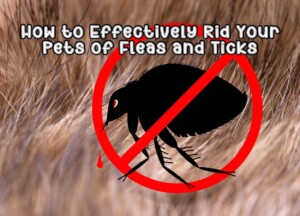
For those who love dogs but suffer from allergies, finding the right breed is crucial. Fortunately, there are several hypoallergenic dog breeds known for their allergy-friendly traits. In this article, we’ll explore some of the best dog breeds for allergy sufferers, including Cockapoo, Cavapoo, and Poodle. We’ll also introduce you to a reputable breeder, Weaver Family Farms Puppies, where you can find these wonderful breeds.
The Hypoallergenic Heroes
1. Cockapoo
- Unique Anchor Text: Weaver Family Farms Puppies – Cockapoo
Cockapoos are a delightful mix of Cocker Spaniel and Poodle, making them an excellent choice for allergy sufferers. Their non-shedding, curly coats produce fewer allergens, making them more compatible with allergy-prone individuals. They’re also known for their friendly and affectionate nature, making them great family pets.
2. Cavapoo
- Unique Anchor Text: Weaver Family Farms Puppies – Cavapoo
Cavapoos are a hybrid breed created by mixing Cavalier King Charles Spaniel and Poodle. They inherit the Poodle’s hypoallergenic coat, making them a suitable choice for allergy sufferers. Cavapoos are known for their sweet temperament, making them great companions for families and individuals alike.
3. Poodle
- Unique Anchor Text: Weaver Family Farms Puppies – Poodle
Poodles are often considered one of the most hypoallergenic dog breeds. They come in various sizes, from toy to standard, and all share the iconic curly, low-shedding coat. Poodles are highly intelligent, trainable, and make excellent pets for those with allergies.
Beyond the Basics
While Cockapoos, Cavapoos, and Poodles are fantastic options, it’s worth exploring other hypoallergenic breeds as well. Some additional breeds to consider include:
4. Bichon Frise
- Bichon Frises have a soft, curly coat that produces fewer allergens. They are known for their cheerful disposition and make loving companions.
5. Maltese
- Maltese dogs have long, silky hair that doesn’t shed excessively. They are gentle, playful, and well-suited for allergy-prone individuals.
6. Shih Tzu
- Shih Tzus have a beautiful, long, and flowing coat that is less likely to trigger allergies. They are affectionate and enjoy being part of the family.
Choosing the Right Breeder
When bringing a new furry family member into your home, it’s crucial to choose a reputable breeder. Weaver Family Farms Puppies stands out as a family-owned small breeder known for their exceptional care of their dogs. They offer Cockapoo, Cavapoo, and Poodle puppies that are well-socialized and raised with love. By choosing a breeder like Weaver Family Farms Puppies, you can ensure that your new hypoallergenic companion receives the best start in life.
Living with allergies doesn’t mean you have to miss out on the joy of having a furry friend by your side. Hypoallergenic dog breeds like Cockapoo, Cavapoo, and Poodle, along with others such as Bichon Frise, Maltese, and Shih Tzu, can provide the companionship you desire without exacerbating your allergies. Just remember to choose a reputable breeder like Weaver Family Farms Puppies to start your journey to a sniffle-free, tail-wagging friendship.
While choosing a hypoallergenic breed is a significant step in managing allergies, there are other considerations and precautions to ensure a comfortable coexistence with your furry friend. Let’s explore some valuable tips and practices for dog owners who are allergy sufferers.
Grooming and Hygiene
Regular grooming and cleanliness play a crucial role in managing allergens associated with dogs.
1. Brush Your Dog Frequently
- Brushing your dog’s coat helps remove loose hair and dander. Choose hypoallergenic grooming tools to minimize allergen dispersal.
2. Bathe Your Dog Regularly
- Regular baths help reduce allergens on your dog’s skin and fur. Use a mild, hypoallergenic dog shampoo recommended by your veterinarian.
3. Clean Your Dog’s Bedding and Toys
- Wash your dog’s bedding, toys, and other accessories regularly to prevent the buildup of allergens.
Allergen Control in the Home
Keeping your home clean and allergen-free is essential for allergy sufferers.
4. Frequent Vacuuming
- Invest in a high-quality vacuum cleaner equipped with a HEPA filter to trap allergens effectively. Vacuum carpets, rugs, upholstery, and any areas your dog frequents.
5. Wash Your Hands and Clothes
- After interacting with your dog, wash your hands and change your clothes to minimize allergen transfer.
6. Use Air Purifiers
- Consider using air purifiers with HEPA filters to help remove airborne allergens.
Allergy Testing and Medication
If you’re unsure about your specific allergies or their severity, consider consulting an allergist. They can perform tests to identify allergens and recommend suitable medications or treatments to manage your symptoms.
Consult with Your Veterinarian
Discuss your allergies with your veterinarian to ensure your dog’s health and well-being. They can provide advice on the best diet, grooming routine, and preventive measures for your specific breed.
Enjoying a Sniffle-Free Bond
With the right breed choice, proper grooming, and allergy management practices, you can enjoy the companionship of a furry friend without the constant sniffles and sneezes. Remember that owning a dog is a commitment, and taking these proactive steps will not only benefit your health but also enhance the bond between you and your allergy-friendly canine companion.
Can I have a dog if I have allergies?
Absolutely! Having allergies doesn’t mean you can’t have a dog. Choosing hypoallergenic breeds and implementing proper allergen management practices can make dog ownership comfortable for allergy sufferers.
What makes a breed hypoallergenic?
Hypoallergenic breeds typically have hair rather than fur, and their hair grows continuously, similar to human hair. This reduces the shedding of allergen-laden fur and dander.
How often should I groom my hypoallergenic dog?
Regular grooming is key. Brush your dog frequently to remove loose hair and dander. The frequency of baths depends on your dog’s activity level and skin condition, but a bath every few weeks is a good starting point.
What should I look for in a hypoallergenic dog shampoo?
Choose a hypoallergenic dog shampoo that is free from harsh chemicals, fragrances, and dyes. Consult your veterinarian for recommendations tailored to your dog’s specific needs.
Are there any home remedies for managing dog allergies?
Maintaining a clean home, using air purifiers, and washing your dog’s bedding and toys regularly are effective home remedies. Additionally, consult with an allergist for personalized advice.
Can allergies worsen over time with a dog?
Allergies to dogs can indeed worsen over time, especially if you’re consistently exposed to allergens. Proper allergen management can help mitigate this.
Should I consider allergy testing before getting a dog?
If you have known allergies or suspect you might be allergic to dogs, allergy testing can provide valuable insights. It’s a proactive step to ensure you choose a breed that suits your allergy profile.
Can I take allergy medication to manage my symptoms?
Allergy medications can be effective in managing symptoms like sneezing and itching. Consult with an allergist or healthcare provider to discuss suitable medications and their potential side effects.
Is there a specific diet that can help with dog allergies?
Some dog food brands offer hypoallergenic options that may be suitable for dogs with allergies. Consult your veterinarian to determine the best diet for your specific dog.
How can I ensure my hypoallergenic dog is healthy?
Regular vet check-ups are essential. Discuss your dog’s breed, allergies, and any concerns with your veterinarian to ensure their health and well-being.
Remember, while allergies can pose challenges, with proper management and the right breed choice, you can enjoy a loving and healthy bond with your canine companion.
As an Amazon Associate we earn from qualifying purchases through some links in our articles.




